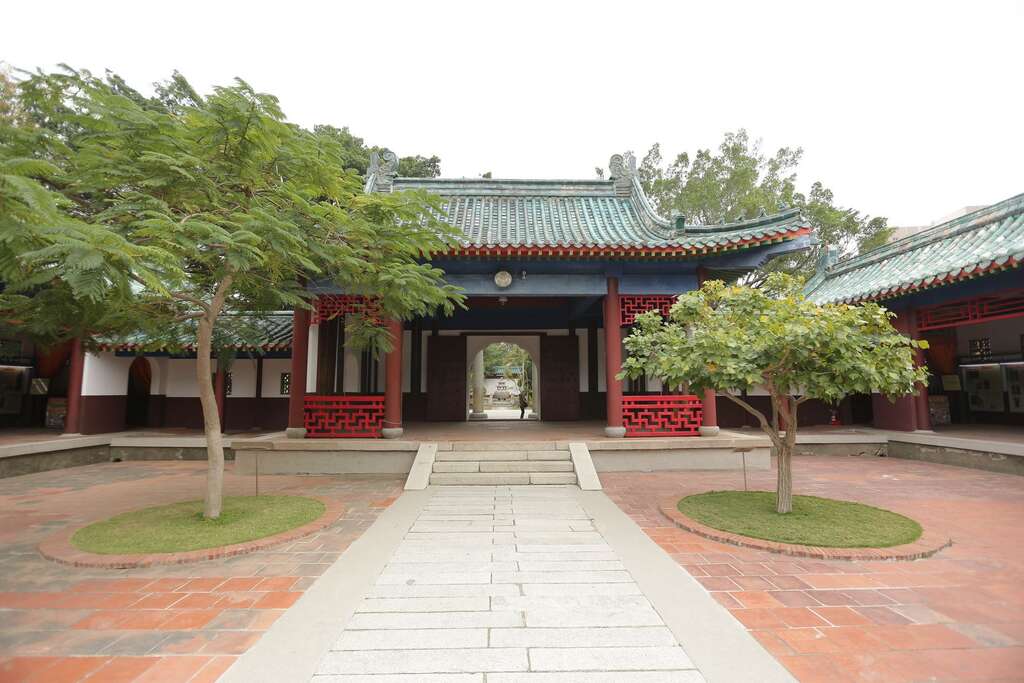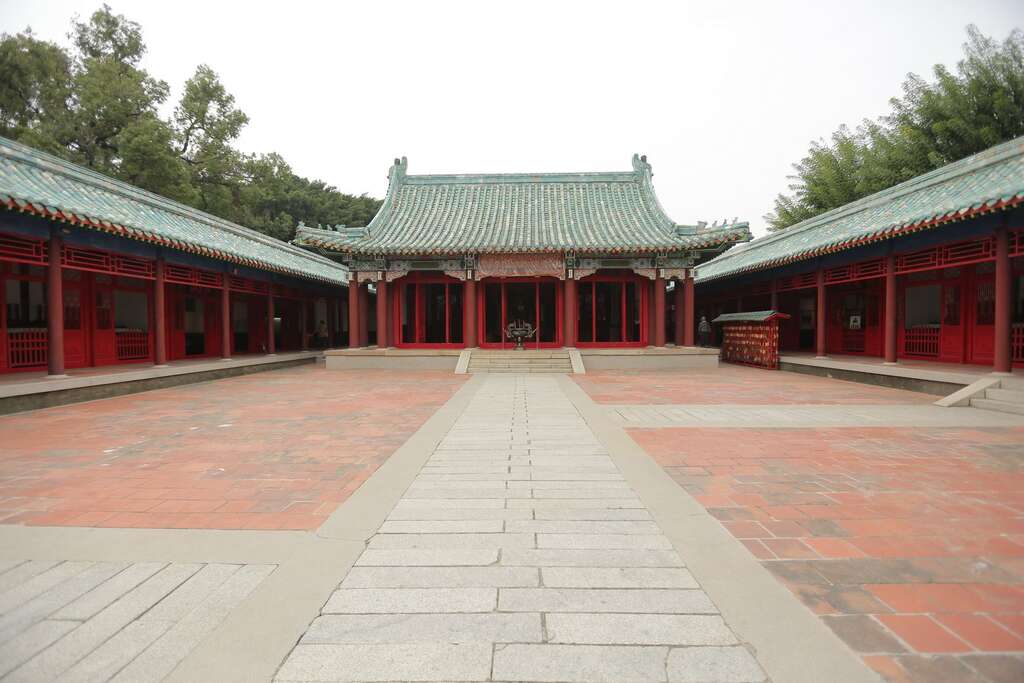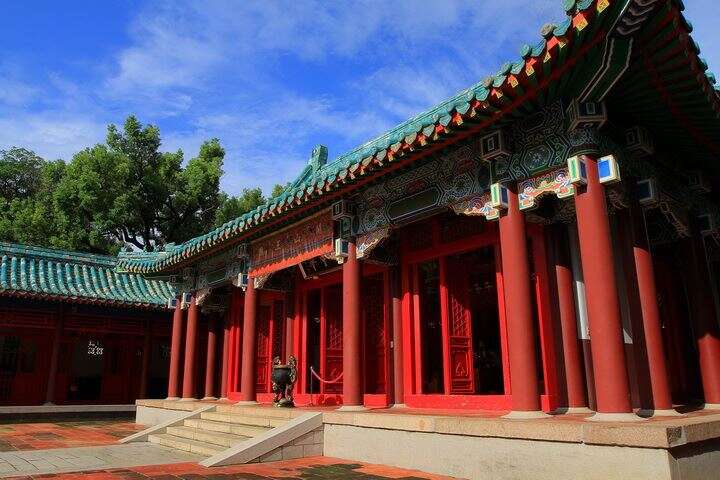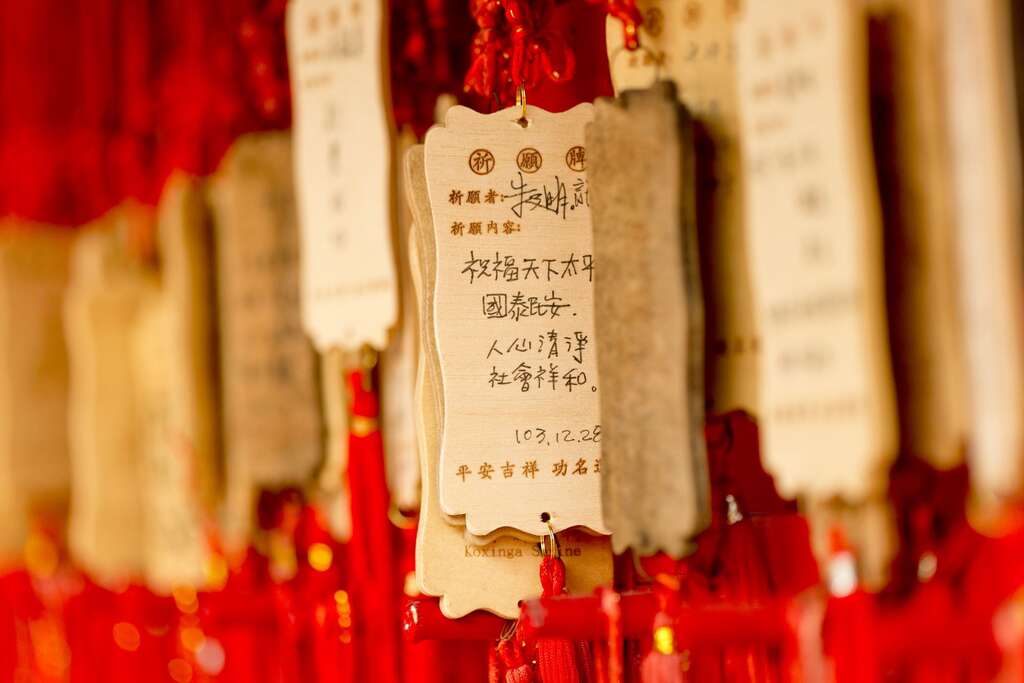군왕
군왕은 한국 역사상 국왕의 가문에서 대표적으로 나타난 왕이다. 군왕은 국왕의 형제 중에서 왕의 후계자로서 국왕이 당대의 정치 사황에 따라 혈통이 깊은 군왕 중에서 하나를 후계자로 선출할 때 등장한다. 그리고 주로 군사 왕종으로서, 군대를 직접 지휘하고 주변 지방을 관할하며 국방을 담당했다. 군왕은 국왕의 후계자가 되기 때문에 다른 왕족들처럼 정치적 및 경제적 권한은 제한을 받을 수 있으나 군사력을 갖추고 있기 때문에 국내의 안보를 책임져야 한다.
군왕의 유래와 역사
군왕은 기원전부터 이미 존재하던 왕족의 한 분야였다. 그러나, 군왕이라는 용어는 고려 시대부터 쓰이기 시작했다. 군왕이란 왕의 기능인 국방왕, 군사 왕종에서 출신이라는 뜻이었다. 조선시대에는 정치적 분권과 이조 시스템 덕분에 군왕의 입지가 더욱 강화되었다. 18세기 중반부터 청나라가 조선에 침략하자, 김조원과 소중사 가문이 대표적인 군왕 부류가 되었다. 군왕은 그들의 위상을 확고히 하면서 차례로 군대를 지휘하고 필요한 군비를 준비하며 국내의 안전을 책임져 나갔다.
조선시대의 군왕 시스템
조선 시대의 군왕은 군사 행정의 일환으로 존재했으며, 왕족 중에서 군사력과 관능이 강한 이들이 군왕으로 임명되었다. 군왕은 왕의 형제 중 하나를 후계자로 선거하게 된다. 그리고 주로 군사 왕종으로서, 군대를 직접 지휘하고 주변 지방을 관할하며 국방을 담당했다. 군왕은 국왕의 후계자가 되기 때문에 다른 왕족들처럼 정치적 및 경제적 권한은 제한을 받을 수 있으나 군사력을 갖추고 있기 때문에 국내의 안보를 책임져야 한다. 군왕은 기본적으로 군사적인 역할을 담당하였으나, 군사 왕종임에도 불구하고 지방 행정에도 큰 역할을 했다.
군왕의 역할과 권한
조선시대의 군왕은 군사 도시의 단장이면서 주둔 군대의 지휘관과 경비를 담당했다. 그러나 군왕은 주둔 지역의 행정, 종묘, 사창, 노비 관리와 같은 여러 역할을 수행하였다. 군왕은 특히 이조 정치를 통한 권유 군사력과 기능제도의 발전으로 권한을 가지게 되었다. 조선시대에 군용품 소유권과 각종 군관의 임명, 군사 인사, 군사 청탁 및 변호 명령, 군대 감축 및 늘림, 방군 등 많은 권한이 있었다.
군왕의 임명과 해임 절차
조선시대 군왕의 임명과 해임은 국왕이 결정하는 것이었다. 다만, 왕족 중 대락 세세한 일을 다루던 김조원이나 소중사 가문은 이를 제외하고는 직접 군사일을 맡으므로 군사 왕종을 대표해서 대우를 받았다. 때문에 대부분이 국왕과 의견 차이를 빚어 해임 판결을 받기도 했다. 군왕이 해임되면 그 후계자가 결정되어 즉각 바꿔치기하는 경우도 있었으며, 로열 치열세에 이르러서는 군왕이 결코 없어지지 않기도 했다.
군왕의 등장 배경과 원리
조선시대 군왕의 등장 배경은 결코 정치적이지 않았다. 그들의 등장 배경은 다양하지만 대체로 왕의 후손들이었다. 왕족 중에서 군사력과 관능이 강한 이들이 군왕으로 임명된 것이다. 이들 군왕들은 주로 군사 왕종으로서, 군대를 직접 지휘하고 주변 지방을 관할하며 국방을 담당했다. 평소 군청을 열어 일반 군사들의 소원과 요구를 청취하고, 진폐나 보조 조직을 설치하면서 부 e문서에 근거하여 지방민에게 노동을 부과했다.
군왕의 특권과 훈장, 예우
조선시대 군왕은 일반적인 왕족들에 비해 특별한 훈장과 예우를 받았다. 이들은 소의 등을 받아들이고, 황제의 반쪽 종검을 받아들일 수 있었다. 또한, 군왕이 도착할 때마다 항사가 축복을 받는 등 예의를 받았다. 이러한 예든 훈장과 같은 것들은 군왕들의 지위나 신분을 더욱 강화했다.
군왕의 문화적 가치와 역사적 의미
군왕은 문화적으로도 큰 소중함을 지니고 있다. 군왕들은 경국대전과 같은 대규모 서적들을 발간했으며, 전통 미술과 음악, 축제와 관계된 작품들을 유산으로 남겨왔다. 이러한 역사적 전승들은 우리나라의 문화적 가치를 대변하고 있다. 또한, 군왕들은 중앙정치와 지방정치를 연결해주는 역할을 했다. 그들은 비록 정치적 활동은 거의 없었지만 문화적·제도적 기능을 수행하면서 국가와 국민들 사이의 유기적 관계를 이끌어내는 역할을 했다.
군왕의 현대적 위치와 역할
군왕의 위치와 역할은 당시와는 크게 달라지게 되었다. 현대 국가에서는 군사 상급자가 필요 없어서 군왕의 역할과 지위는 없어졌다. 하지만 군왕이 남긴 유산은 여전히 매우 중요하다. 군왕의 문화적 가치와 역사적 의미는 우리나라의 역사와 문화를 대변하고 있다. 그리고 군사력을 바탕으로 안보를 유지하고 내외무역 등을 관할하며 군사 도시의 단장이면서 주둔 군대의 지휘관과 경비를 담당했던 역할은 경찰관의 업무와 유사하게 대체됐다.
군왕의 유적과 기념 시설 등의 문화재 보존 상황
군왕의 유적과 기념 시설 등의 문화재 보존 상황은 현재 매우 중요한 문제이다. 많은 군왕들의 유적이 무의식적으로 인하여 파괴되었으며, 전통관념과 적극적인 보존 정책이 부재한 상황이다. 이에 대한 충분한 대책과 보존 정책이 마련되어야 할 것이다.
FAQs:
1. 군왕이란 무엇인가?
군왕은 한국 역사상 국왕의 가문에서 대표적으로 나타난 왕이다. 군왕은 국왕의 형제 중에서 왕의 후계자로서 국왕이 당대의 정치 사황에 따라 혈통이 깊은 군왕 중에서 하나를 후계자로 선출할 때 등장한다. 그리고 주로 군사 왕종으로서, 군대를 직접 지휘하고 주변 지방을 관할하며 국방을 담당했다.
2. 군왕의 역할과 권한은 무엇인가?
조선시대 군왕의 역할은 군사 도시의 단장이면서 주둔 군대의 지휘관과 경비를 담당했다. 그리고 군왕은 주로 군사 왕종으로서, 군대를 직접 지휘하고 주변 지방을 관할하며 국방을 담당했다. 군왕은 기본적으로 군사적인 역할을 담당하였으나, 군사 왕종임에도 불구하고 지방 행정에도 큰 역할을 했다.
3. 군왕의 유래와 역사는 어떻게 되는가?
조선시대의 군왕은 군사 행정의 일환으로 존재했으며, 왕족 중에서 군사력과 관능이 강한 이들이 군왕으로 임명되었다. 군왕은 왕의 형제 중 하나를 후계자로 선거하게 된다. 그리고 주로 군사 왕종으로서, 군대를 직접 지휘하고 주변 지방을 관할하며 국방을 담당했다.
4. 군왕의 문화적 가치와 역사적 의미는 무엇인가?
군왕은 문화적으로도 큰 소중함을 지니고 있다. 군왕들은 경국대전과 같은 대규모 서적들을 발간했으며, 전통 미술과 음악, 축제와 관계된 작품들을 유산으로 남겨왔다. 이러한 역사적 전승들은 우리나라의 문화적 가치를 대변하고 있다. 또한, 군왕들은 중앙정치와 지방정치를 연결해주는 역할을 했다.
5. 군왕의 유적과 기념 시설 등의 문화재 보존 상황은 어떤가?
군왕의 유적과 기념 시설 등의 문화재 보존 상황은 현재 매우 중요한 문제이다. 많은 군왕들의 유적이 무의식적으로 인하여 파괴되었으며, 전통관념과 적극적인 보존 정책이 부재한 상황이다. 이에 대한 충분한 대책과 보존 정책이 마련되어야 할 것이다.
사용자가 검색한 키워드: 군왕 친왕 뜻, 번왕, 왕 종류, 명나라 친왕, 프린스 뜻, 일본 친왕, 장 친왕, 황제의 형제
Categories: Top 79 군왕
[삼국블레이드] 탐욕의 화신 ‘군왕 동탁’ 초월 업데이트!
여기에서 자세히 보기: chinhphucnang.com
친왕 뜻
In this article, we will explore the meaning and significance of 친왕 뜻, its historical origins and how it has evolved over time. We will also examine some of the frequently asked questions associated with 친왕 뜻.
The Meaning of 친왕 뜻
친왕 뜻 is a concept that is deeply ingrained in the Korean consciousness. It has been associated with the Confucian values that have been adopted in Korea, such as loyalty, filial piety, and duty. The term itself is made up of two parts – 친왕 (chin-wang) and 뜻 (tset).
친왕 refers to serving the king with loyalty and devotion. It is a concept that was first introduced during the Goryeo dynasty (918-1392), where it was used to describe the obligation that officials had to their ruler. This meant that officials were expected to put the needs of the king above their own and to work tirelessly to ensure the stability and prosperity of the kingdom.
뜻, on the other hand, refers to a sense of purpose or intention. In the case of 친왕 뜻, it refers to the intention to serve the king with loyalty and devotion.
Historical Origins of 친왕 뜻
The concept of 친왕 뜻 can be traced back to the early days of Korean history. One of the earliest references to this concept can be found in the Samguk Sagi, a historical record of the Three Kingdoms period (57 BC – AD 668).
According to the Samguk Sagi, King Jumong, the founder of the Goguryeo Kingdom, recognized the importance of loyalty to the ruler, and he set an example for future leaders to follow. King Jumong is said to have worked tirelessly to build a strong and prosperous kingdom, and he placed great emphasis on the loyalty and devotion of his officials.
During the Goryeo dynasty, the concept of 친왕 뜻 became more widespread, and it was used as a way to promote social harmony and stability. Officials were expected to put the needs of the king and the kingdom above their own, and they were required to work tirelessly to ensure that the kingdom remained prosperous and secure.
Over time, the concept of 친왕 뜻 evolved to encompass not just the loyalty of officials but also the loyalty of all citizens. It was believed that everyone had a duty to serve the king and the kingdom, and this duty was seen as being more important than individual needs or desires.
Modern Interpretations of 친왕 뜻
While the concept of 친왕 뜻 has evolved over time, it remains an important part of Korean culture today. It is still seen as a duty and a responsibility to serve the country and its people, and many Koreans strive to live up to this ideal.
For many Koreans, serving the country means doing their best in their chosen profession, whether it be as a doctor, teacher, or civil servant. It is seen as a way to contribute to the country’s development and to make a positive impact on society.
In recent years, there has been renewed interest in the concept of 친왕 뜻 among young people in Korea. Many young Koreans are looking for ways to contribute to their country and to make a difference in their communities. This has led to the development of a number of initiatives and projects aimed at promoting citizenship and civic engagement.
FAQs
Q: Is 친왕 뜻 only relevant in Korea?
A: Yes, 친왕 뜻 is a concept that is unique to Korean culture and history.
Q: Has the meaning of 친왕 뜻 changed over time?
A: Yes, the meaning of 친왕 뜻 has evolved over time, but it remains a core value in Korean culture.
Q: Is 친왕 뜻 still relevant in modern Korea?
A: Yes, 친왕 뜻 is still an important concept in modern Korea, and many Koreans strive to live up to this ideal.
Q: Do Koreans still feel a sense of duty to serve the country today?
A: Yes, many Koreans feel a strong sense of duty to serve the country and to make a positive impact on society.
Q: How has the concept of 친왕 뜻 influenced Korean society?
A: The concept of 친왕 뜻 has had a profound influence on Korean society, promoting values such as loyalty, duty, and civic responsibility. It has also helped to promote social harmony and stability throughout Korean history.
Conclusion
친왕 뜻 is a concept that is deeply ingrained in Korean culture and history. It is a reminder of the duty and sacrifice required in public service, and it is a testament to the importance of loyalty and devotion. Although the meaning of 친왕 뜻 has evolved over time, it remains an important value in Korean culture today, promoting citizenship, civic responsibility, and social harmony. As Korea continues to evolve and grow, the concept of 친왕 뜻 will undoubtedly continue to play an important role in shaping the country’s identity and values.
번왕
The Legend of Beonwang
According to legend, Beonwang was born as a human but grew up with a violent and cruel nature. He was notorious for his heinous crimes, including murder, theft, and other forms of violence. As his crimes mounted, Beonwang was eventually caught and punished by the authorities.
However, his punishment did not end with a simple prison sentence. Instead, Beonwang was sentenced to an eternal punishment in the underworld, where he would suffer for his crimes for all eternity. Over time, Beonwang’s power grew in the underworld, and he eventually became the ruler of all demons.
Despite his fearsome reputation, Beonwang was not invincible. In fact, he was known for his cunning and guile, often using his intellect and trickery to get what he wanted. He was also a master of deceit, often using his powers to manipulate others into doing his bidding.
Beonwang’s powers were vast and varied. He was known for his ability to control both demons and humans, and was often called upon to punish those who broke the rules of society. He was also said to have the power to control the weather, and was known for summoning storms and other natural disasters when he was angered or displeased.
Despite his ominous reputation, Beonwang played an important role in Korean mythology. He was often called upon to settle disputes between gods and demons, and was seen as a mediator between the two sides. He was also considered a protector of the innocent, often summoning armies of demons to protect those who were being unfairly persecuted.
FAQs
1. What does Beonwang mean?
The name Beonwang is derived from the Korean words “Beon” and “Wang,” which respectively mean “number” and “king.” Therefore, Beonwang can be translated as “the king of numbers.”
2. Is Beonwang a real person?
No, Beonwang is a mythological figure in Korean folklore. While there may have been historical figures who inspired the legend of Beonwang, there is no historical evidence to support his existence.
3. Why is Beonwang feared?
Beonwang is feared for his power and cruelty. He is known for his ability to control demons and humans, as well as his ability to summon natural disasters. Additionally, Beonwang is known for his cunning and guile, often using his intelligence to manipulate others into doing his bidding.
4. What is Beonwang’s role in Korean mythology?
Beonwang is often called upon to settle disputes between gods and demons, and is seen as a mediator between the two sides. He is also considered a protector of the innocent, often summoning armies of demons to protect those who are being unfairly persecuted.
5. Can Beonwang be defeated?
While Beonwang is a powerful figure in Korean mythology, he is not invincible. In fact, Beonwang is known for his cunning and guile, rather than brute strength. Therefore, it is possible for a skilled opponent to defeat him.
Conclusion
The legend of Beonwang is one of the most fascinating and frightening stories in Korean folklore. As the king of all demons, Beonwang is feared for his power, cruelty, and cunning. However, he also plays an important role in Korean mythology, acting as a mediator between gods and demons and protecting the innocent from persecution. While his powers may be vast and varied, Beonwang is not invincible, and can be defeated by a skilled opponent. Overall, the legend of Beonwang serves as a cautionary tale about the importance of ethical behavior and the consequences of immoral actions.
주제와 관련된 이미지 군왕
![[삼국블레이드] 탐욕의 화신 '군왕 동탁' 초월 업데이트! [삼국블레이드] 탐욕의 화신 '군왕 동탁' 초월 업데이트!](https://chinhphucnang.com/wp-content/uploads/2023/06/hqdefault-413.jpg)
군왕 주제와 관련된 이미지 30개를 찾았습니다.

![POE] 3.16 스컬지 서포터팩 군왕vs공포, 무기별 스킨 비교 - YouTube Poe] 3.16 스컬지 서포터팩 군왕Vs공포, 무기별 스킨 비교 - Youtube](https://i.ytimg.com/vi/nMohzucw50k/maxresdefault.jpg)




![리니지M] [렌] 라스타바드 영웅장비 암살군왕의 장갑을 만들었습니다! (축젤작업, 7돌장 도전, 라던 영웅장비 제작 설명) 天堂m LineageM - YouTube 리니지M] [렌] 라스타바드 영웅장비 암살군왕의 장갑을 만들었습니다! (축젤작업, 7돌장 도전, 라던 영웅장비 제작 설명) 天堂M Lineagem - Youtube](https://i.ytimg.com/vi/fZcSHLJ90kc/maxresdefault.jpg)


![한일학술대회 임상사례]군왕식 질병예방·건강증진에 도움 한일학술대회 임상사례]군왕식 질병예방·건강증진에 도움](https://www.bokuennews.com/data/photos/cdn/20170520/art_1494815106.jpg)
![리니지M] [렌] 3번째 라스타바드 영웅아이템! 마수군왕의 부츠 만들었습니다! (간단한 라던 영웅템 설명) 天堂m LineageM - YouTube 리니지M] [렌] 3번째 라스타바드 영웅아이템! 마수군왕의 부츠 만들었습니다! (간단한 라던 영웅템 설명) 天堂M Lineagem - Youtube](https://i.ytimg.com/vi/CE7SKIEESVo/maxresdefault.jpg)
![마수군왕바란카 레이드 갑니다.[리니지 태산군주] 泰山君主 Lineage - YouTube 마수군왕바란카 레이드 갑니다.[리니지 태산군주] 泰山君主 Lineage - Youtube](https://i.ytimg.com/vi/1J1RboIUXGY/hqdefault.jpg)


![렌] [리니지M] 군왕세트 전부 만들었습니다!!! 5번째 라스타바드 영웅아이템 제작! 天堂m LineageM - YouTube 렌] [리니지M] 군왕세트 전부 만들었습니다!!! 5번째 라스타바드 영웅아이템 제작! 天堂M Lineagem - Youtube](https://i.ytimg.com/vi/SYVakZB_9Wk/maxresdefault.jpg)

![렌] [리니지M] 어떻게 200방이 나오지? 군왕셋입은 광전사 본캐릭 스펙공개! (매우 상세하게 보여드립니다!! / 200방을 꿈꾸는 분들 참고 영상) 天堂m LineageM - YouTube 렌] [리니지M] 어떻게 200방이 나오지? 군왕셋입은 광전사 본캐릭 스펙공개! (매우 상세하게 보여드립니다!! / 200방을 꿈꾸는 분들 참고 영상) 天堂M Lineagem - Youtube](https://i.ytimg.com/vi/RuiYCu5_lBg/maxresdefault.jpg)



![리니지m 늑돌맨] 라스타바드 던전 - 명법군왕의방 : 마법사 턴사냥!! [리니지m 天堂M LineageM] - YouTube 리니지M 늑돌맨] 라스타바드 던전 - 명법군왕의방 : 마법사 턴사냥!! [리니지M 天堂M Lineagem] - Youtube](https://i.ytimg.com/vi/FnqWuq_P9hk/hqdefault.jpg)
Article link: 군왕.
주제에 대해 자세히 알아보기 군왕.
- 군왕 – 위키백과, 우리 모두의 백과사전
- 군왕 – 위키낱말사전
- 한국사데이터베이스 비교보기 > 고보원을 조선군왕에 책봉하다
- 서암식 군왕 I (250g-1개입) 6월30일까지 10% 할인
더보기: https://chinhphucnang.com/blogko/